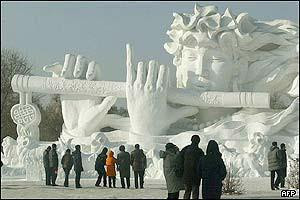उदार-प्रकृति के लोग कई बार चालाक लोगों द्वारा ठगे जाते हैं और उससे उन्हें घाटा ही रहता है, पर उनकी सज्जनता से प्रभावित होकर दूसरे लोग जितनी उनकी सहायता करते हैं उस लाभ के बदले में ठगे जाने का घाटा कम ही रहता है । सब मिलाकर वे लाभ में ही रहते हैं ।
इसी प्रकार स्वार्थी लोग किसी के काम नहीं आने से अपना कुछ हर्ज या हानि होने का अवसर नहीं आने देते, पर उनकी कोई सहायता नहीं करता तो वे उस लाभ से वंचित भी रहते हैं । ऐसी दशा में वह अनुदार चालाक व्यक्ति, उस उदार और भोले व्यक्ति की अपेक्षा घाटे में ही रहता है ।
दुहरे बाँट रखने वाले बेईमान दुकानदारों को कभी फलते-फूलते नहीं देखा गया । स्वयं खुदगर्जी और अशिष्टता बरतने वाले लोग जब दूसरों से सज्ज्नता और सहायता की आशा करते हैं तो ठीक दुहरे बाँट वाले बेईमान दुकानदार का अनुकरण करते हैं । ऐसा व्यवहार कभी किसी के लिए उन्नति और प्रसन्नता का कारण नहीं बन सकता ।
-पं. श्रीराम शर्मा आचार्य
युग निर्माण योजना - दर्शन, स्वरूप व कार्यक्रम-६६ (५.१७)
Good nature doesn’t cost anything
Selfless and generous individuals are often tricked by cunning people and as a result, they may usually seem to be at disadvantage. On the other hand, many people—influenced by their generosity—offer them so much help and support that the disadvantage of being tricked by cunning people more or less gets eclipsed by the advantage of reaping help and support from many people. All in all, selfless and generous individuals are always at advantage.
In the same way, selfish people may not bother to help others and in doing so, they may avoid losing anything. However, their selfish nature discourages other people from offering help, thus depriving them of that crucial advantage. To put in a nutshell, mean and selfish individuals would generally suffer greater loss than generous and good-natured individuals.
Corrupt traders who follow double-standards are never seen prospering. Selfish, egoistical and bad-mannered people who expect others to be good to them and help them are actually behaving in the same way as the corrupt traders having double-standards. Such behavior can never ever lead to progress and happiness in life.
-Pt. Shriram Sharma Acharya
Translated from - Pandit Shriram Sharma Acharya’s work
Yug Nirman Yojana: Darshan, swaroop va karyakram 66:5.17













